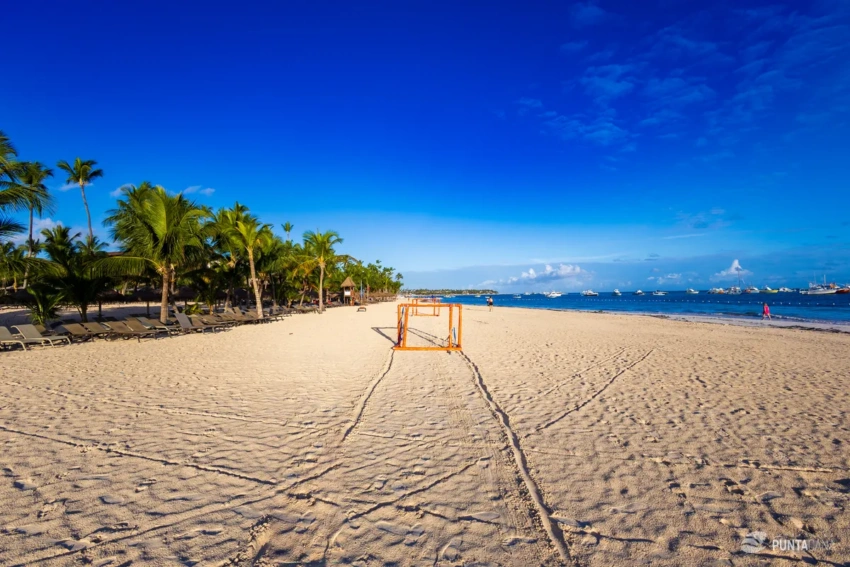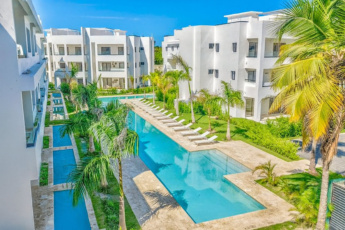Budgeting for 2025: Managing Inflation and Extra Fees When Renting in Punta Cana
Understanding the Rental Market in Punta Cana for 2025

Budgeting for 2025: Managing Inflation and Extra Fees When Renting in Punta Cana
As 2025 approaches, the rental market in Punta Cana is expected to undergo significant transformations. Understanding these changes is crucial for both prospective tenants and investors looking to make informed decisions. This section provides a comprehensive overview of the anticipated trends, the influence of inflation, and regulatory shifts that could shape the rental landscape.
1. Current Trends Influencing Punta Cana Rentals
The rental market in Punta Cana is shaped by a convergence of factors that are likely to influence pricing and availability in 2025. Tourism remains a major driver of demand, with the area continuing to attract international visitors and expatriates. This has led to an increase in short-term rental properties, often catering to tourists, and a competitive long-term rental market.
In recent years, there has been a noticeable shift towards sustainable living and eco-friendly accommodations. Properties that incorporate green technologies and sustainability measures are in higher demand. Tenants are increasingly seeking homes with solar panels, energy-efficient appliances, and water conservation systems.
Another trend is the growing popularity of co-living spaces, which offer cost-effective solutions and a sense of community. These are particularly appealing to younger renters and digital nomads looking for flexibility and social interaction.
2. Impact of Inflation on Rental Prices
Inflation is a critical factor that will impact rental prices in Punta Cana. As inflation rates rise globally, the cost of living, including rent, is expected to increase. For tenants, this means a potential decrease in spending power unless wages rise correspondingly.
In Punta Cana, inflation could lead to a rise in operational costs for property owners, including maintenance and utilities, which are often passed on to tenants in the form of higher rents. Prospective renters should anticipate these changes and plan their budgets accordingly to accommodate possible rent hikes.
Projected Inflation Impact on Rental Prices
| Year | Inflation Rate (%) | Average Rent Increase (%) | Tenant Spending Power |
|---|---|---|---|
| 2023 | 3.5 | 2.8 | Stable |
| 2024 | 4.0 | 3.5 | Moderate Pressure |
| 2025 | 4.5 | 4.0 | Significant Pressure |
For those planning to rent in 2025, it is advisable to consider long-term leases that might offer more favorable terms and provide a buffer against sudden surges in rental costs.
3. Regulatory Changes and Their Impact on Renters
The Dominican Republic is experiencing regulatory changes that may impact the rental market in 2025. These include new legislation focused on tenant rights and improved transparency in rental agreements.
Upcoming regulations aim to protect tenants from arbitrary rent increases and unclear lease terms. Rent control measures may also be introduced to stabilize the market, ensuring that rental prices do not exceed a certain threshold.
Additionally, property owners might need to comply with enhanced safety standards and environmental regulations, which could lead to improvements in property quality but might also result in increased costs, potentially affecting rental prices.
Understanding these regulatory changes is crucial for renters to safeguard their interests and ensure they are not subjected to unreasonable terms.
Budgeting for Inflation: Strategies and Tips
As we approach 2025, inflation continues to be a significant concern for those looking to rent property in Punta Cana. Understanding how to effectively budget in this financial climate is essential for managing your expenses without compromising your lifestyle.
1. Predicting and Planning for Inflation Costs
Anticipating inflationary pressures requires a proactive approach to financial planning. By understanding economic trends and potential cost increases, you can better prepare your budget. Consider the following strategies:
- Research Economic Indicators: Stay informed about key economic indicators such as the Consumer Price Index (CPI) and local inflation rates. This data can provide insights into expected cost increases.
- Consult Financial Experts: Engaging with financial advisors can provide personalized insights into how inflation might impact your specific financial situation.
- Adjust Savings Plans: Increase your savings rate to buffer against potential cost increases. Allocating a portion of your income to an inflation-adjusted savings account can help preserve your purchasing power.
2. Adjusting Your Lifestyle to Manage Rising Costs
Adapting your lifestyle can significantly mitigate the impact of inflation on your budget. Here are some practical tips:
- Prioritize Needs Over Wants: Distinguish between essential and non-essential expenses. Focus on necessities and reduce discretionary spending to maintain financial stability.
- Adopt a Minimalist Approach: Simplifying your lifestyle can decrease living expenses. Consider downsizing your living space or reducing utility consumption to lower costs.
- Explore DIY Solutions: Learning to handle basic home maintenance tasks can save money. Online tutorials and community workshops are great resources for acquiring these skills.
3. Utilizing Technology for Budget Management
Incorporating technology into your financial planning can streamline your budgeting process and provide valuable insights:
- Leverage Budgeting Apps: Applications like Mint, YNAB (You Need A Budget), and Personal Capital offer comprehensive tools for tracking expenses and planning budgets.
- Automate Savings: Use apps that automate savings transfers, ensuring a portion of your income is regularly set aside for future expenses.
- Analyze Spending Patterns: Budgeting software can help identify spending trends, enabling you to make informed decisions on where to cut costs.
Comparison of Popular Budgeting Apps
| App | Features | Cost | Best For |
|---|---|---|---|
| Mint | Expense tracking, bill reminders, free credit score | Free | Beginner budgeters |
| YNAB | Goal setting, debt payoff planner, detailed reports | $11.99/month | Hands-on budgeting |
| Personal Capital | Investment tracking, net worth calculation | Free | Investors |
By strategically planning for inflation, making thoughtful lifestyle adjustments, and leveraging technology, renters in Punta Cana can effectively manage their budgets amidst rising costs. These proactive measures will ensure financial stability and allow you to enjoy the beauty of Punta Cana without unnecessary financial strain.
Understanding and Managing Extra Fees in Rentals
Navigating the world of rental agreements can often feel like traversing a maze, especially when it comes to understanding and managing extra fees. As you plan your budget for renting in Punta Cana, it’s crucial to be aware of these potential additional costs and how they can impact your overall financial planning.
1. Common Extra Fees in Punta Cana Rentals
Renters in Punta Cana should be prepared to encounter a variety of additional fees that may not be immediately apparent when first viewing a rental property. These fees can significantly affect your budget, so it’s important to understand what they are and how they can accumulate.
- Maintenance Fees: Often associated with condo rentals, these fees cover the upkeep of common areas such as pools, gardens, and security services. They can range from $50 to $200 per month depending on the property.
- Security Deposits: Typically equivalent to one or two months’ rent, this fee is refundable at the end of your lease, provided there’s no damage to the property.
- Utility Setup Fees: New renters may be required to pay setup fees for utilities like electricity, water, and internet, which can add a few hundred dollars to initial costs.
- Late Payment Fees: If rent is not paid on time, landlords may impose late fees, which can be a fixed amount or a percentage of the rent.
- Pet Fees: If you have pets, be prepared for additional charges, either as a one-time fee or a monthly surcharge.
2. Negotiating Fees with Landlords
Negotiating with landlords can seem daunting, but it’s a valuable skill that can lead to significant savings. Here are some effective strategies to potentially reduce or eliminate extra charges:
- Understand the Market: Research comparable rental rates in the area to provide context for your negotiation. If similar properties offer lower fees, use this as leverage.
- Offer Upfront Payments: Landlords might be willing to negotiate fees if you offer to pay several months’ rent in advance.
- Highlight Your Tenant Profile: Demonstrating your reliability as a tenant through references and a solid credit score can encourage landlords to reduce fees.
- Request Fee Waivers for Long-term Leases: If you’re willing to commit to a longer lease term, landlords may agree to waive certain fees.
- Propose a Trial Period: For non-refundable fees, suggest a trial period for elements like pet accommodations, offering to pay only if the arrangement is continued.
3. Legal Protections and Rights for Renters
Understanding your legal rights as a tenant in Punta Cana is crucial to ensuring you aren’t overcharged or unfairly treated. Here’s an overview of key protections:
Dominican Republic tenancy laws provide a framework to protect renters from excessive fees and unfair practices. However, these rights can vary, so it’s essential to be informed and proactive.
- Transparent Fee Disclosure: Landlords are required to disclose all fees in the rental contract. Ensure all charges are clearly documented before signing.
- Deposit Regulations: Security deposits should be handled transparently, with clear agreements on conditions for deductions. Any disputes can be taken to local housing authorities.
- Protection from Unlawful Evictions: Tenants have the right to due process and cannot be evicted without proper legal proceedings, even if disputes over fees arise.
- Access to Legal Aid: If disputes arise, tenants can seek assistance from local legal aid services specializing in housing rights.
To maximize your rental experience in Punta Cana, being aware of common fees, honing negotiation skills, and understanding your legal rights are essential steps. By proactively managing these aspects, you can safeguard your budget and enjoy your tropical haven with peace of mind.
Finding Cost-Effective Rental Options
As the allure of Punta Cana continues to captivate travelers and expatriates alike, finding a rental property that combines affordability with quality is increasingly becoming a priority. With the right strategies, you can enjoy the tropical paradise without breaking the bank.
1. Exploring Different Neighborhoods

Punta Cana
Punta Cana offers a diverse range of neighborhoods, each with its unique charm and price range. For budget-conscious renters, understanding these areas is crucial.
- Bávaro: Known for its lively atmosphere and proximity to beaches, Bávaro offers a mix of affordable apartments and houses. While some areas are more tourist-driven, there are pockets with reasonable prices ideal for long-term stays.
- El Cortecito: This quaint fishing village has seen growth in affordable rental options, particularly attractive to those looking for a local vibe with easy access to the beach.
- Verón: Slightly inland, Verón provides more economical rental options, perfect for those who do not mind a short commute to the main beaches and amenities.
Choosing the right neighborhood not only influences rental costs but also impacts your overall experience. Consider factors such as commute times, proximity to services, and community atmosphere when making your decision.
2. Utilizing Rental Platforms and Agents
In the digital age, finding a rental property has never been easier, yet the abundance of options can be overwhelming. Here’s how to streamline your search:
Online rental platforms like Airbnb and Booking.com can provide a wealth of options, but for long-term rentals, consider specialized websites such as Zillow or Airbnb. These platforms allow you to filter properties based on your budget, preferred location, and amenities.
Real estate agents in Punta Cana can also be invaluable in your search. They have local market knowledge and can often find hidden gems that aren’t listed online. When working with agents, be clear about your budget and must-have features to avoid unnecessary costs.
Our Apartments for Rent in Punta Cana
Discover an array of rental options tailored to suit different budgets and preferences. Whether you seek a serene retreat or a vibrant community, our listings offer something for everyone.

Modern Studio for Rent in Downtown Punta Cana, Las Mercedes - With Pool & Private Balcony - Self Check-in
from $120 night Read more
Gorgeous Beach Condo Elite Suite C3
from $177 night Read more
Bávaro White Sand 2BR Townhouse - Long Term Rental in Punta Cana
from $1700 night Read more
Long-Term Vacation Rental in ONA Residences Punta Cana - Fully Furnished 1BR Swim-Up Condo
from $1400 night Read more3. Timing Your Rental Search
Timing can significantly affect the cost of rentals in Punta Cana. By understanding the seasonal trends, you can potentially secure better deals.
- Low Season (May to November): During this period, demand for rental properties typically decreases, leading to lower prices. This is an excellent time to negotiate better rates or find discounted properties.
- High Season (December to April): Rental prices peak as tourists flock to the area. If possible, avoid starting your search during these months to sidestep inflated costs.
Additionally, starting your search well in advance—at least 3 to 6 months before your intended move—can give you a competitive edge. This lead time allows you to explore more options and negotiate effectively with landlords.
By leveraging these strategies, you can find a rental property in Punta Cana that fits your budget without compromising on quality. Embrace the vibrant lifestyle of this tropical paradise while maintaining financial prudence.
Long-term Financial Planning for Renters
Securing a stable financial future as a renter in Punta Cana requires strategic long-term planning, especially with the evolving economic landscape. As costs continue to rise, preparing for the unexpected and making smart investments can make all the difference.
1. Building an Emergency Rental Fund
Creating an emergency rental fund is crucial for safeguarding against unforeseen financial difficulties. This fund acts as a buffer to cover unexpected expenses like urgent repairs or sudden rent increases, ensuring you have peace of mind in any situation.
- Calculate Your Goal: Aim to save at least three to six months’ worth of rent. This amount should cover your base rent as well as any additional monthly fees.
- Automate Savings: Set up automatic transfers to a dedicated savings account. This ensures consistent saving without the temptation to spend the money elsewhere.
- Prioritize High-Yield Accounts: Utilize high-yield savings accounts or money market accounts to maximize interest earnings on your emergency fund.
Building an emergency fund requires discipline but offers substantial long-term benefits. The fund not only provides financial security but also enhances your ability to negotiate rental agreements confidently.
2. Investing in Cost-saving Home Improvements
Investing in home improvements that enhance efficiency can significantly reduce your rental property costs over time. These improvements not only lower utility bills but also increase the sustainability of your living space.
- Energy-efficient Appliances: Swap out old, inefficient appliances for ENERGY STAR-certified models. These devices use less electricity, reducing monthly utility bills.
- Smart Home Technology: Consider installing smart thermostats and lighting systems. These technologies help optimize energy use, adjusting to your schedule and habits.
- Water-saving Fixtures: Install low-flow showerheads and faucets to conserve water usage, particularly beneficial in areas with high water costs.
While the initial investment might seem significant, the savings on utilities and the environmental benefits make these upgrades worthwhile in the long run.
3. Considering Rent-to-Own Options
Rent-to-own agreements offer a unique opportunity for renters to transition into homeownership. These arrangements can be particularly appealing in high-demand areas like Punta Cana, where property prices may otherwise be prohibitive.
- Understand the Terms: Rent-to-own contracts typically include a lease agreement and a purchase option. It’s crucial to understand the terms, including the purchase price, option fee, and duration of the agreement.
- Evaluate Financial Viability: Assess your financial ability to eventually purchase the property. Consider how the monthly payments fit into your budget and whether you can secure a mortgage when the time comes.
- Legal Considerations: Consult with a real estate attorney to ensure that the contract terms are fair and legally sound. This step can prevent potential disputes with the landlord or seller.
Rent-to-own agreements not only provide a path to ownership but also allow renters to build equity over time. This option can be particularly advantageous in a competitive market, offering both stability and a future investment.
Our Apartments for Rent in Punta Cana
Discover our curated selection of apartments available for rent in Punta Cana, perfect for those looking to secure their financial future with a strategic rental choice. These properties offer a blend of luxury and practicality, ensuring you get the best value for your investment.

Incredible Beach Penthouse with Private Pool C4
from $246 night Read more
Incredible Ocean View Beach Condo 3 Bedroom E3
from $238 night Read more
Incredible Beach Condo Elite Suite D3
from $197 night Read more
Incredible Beach Condo Elite Suite C1
from $166 night Read moreFrequently Asked Questions
How can I effectively budget for renting in Punta Cana in 2025?
To budget effectively for renting in Punta Cana in 2025, start by researching current rental prices and average annual increases due to inflation. Consider setting aside a portion of your budget for unexpected costs, such as maintenance or utilities, which can vary. It’s also wise to track your monthly expenses and adjust your budget as necessary to stay aligned with your financial goals.
What are common extra fees I might encounter when renting in Punta Cana?
Common extra fees when renting in Punta Cana may include utilities, maintenance fees, security deposits, and possibly community or association fees depending on the property’s location. Make sure to clarify all potential fees with your landlord or property management before signing a lease.
How does inflation affect rental costs in Punta Cana?
Inflation can lead to an increase in rental costs as property owners adjust prices to match the rising cost of living and maintenance. It’s important to account for potential rent increases in your budgeting and consider negotiating fixed-term leases to lock in rates where possible.
Are there any strategies to mitigate the impact of inflation on my rental budget?
To mitigate the impact of inflation on your rental budget, consider negotiating a longer lease term to lock in the current rental rate, seek properties with inclusive utilities, or explore shared housing options to distribute costs. Additionally, regularly review your financial plan to adjust for inflationary trends.
What should I include in my rental budget for Punta Cana in 2025?
Your rental budget should include the base rent, estimated utilities, insurance, maintenance fees, and any other costs such as security deposits. It’s also wise to set aside an emergency fund for unexpected expenses. Regularly updating your budget will help you manage these costs effectively.
How can I find accurate rental price information for Punta Cana?
To find accurate rental prices, use reputable real estate websites, contact local real estate agents, and review local rental listings. Networking with residents or expats can also provide insights into fair pricing and market trends.
What legal considerations should I be aware of when renting in Punta Cana?
When renting in Punta Cana, ensure the lease agreement is clear and includes all terms, fees, and conditions. Verify the landlord’s ownership of the property and understand your rights as a tenant under Dominican law. Consulting with a local attorney can be beneficial for understanding legal obligations and protections.
How can I negotiate rent in Punta Cana to fit my budget?
Negotiating rent involves researching comparable properties to understand market rates, being prepared to discuss long-term lease options, and highlighting your reliability as a tenant. Approach negotiations respectfully and be ready to walk away if terms do not meet your budget.
Are there any government regulations affecting rental prices in Punta Cana?
While government regulations can impact rental markets, specifics can change over time. It’s important to stay informed about any new regulations or policies affecting rental prices. Consulting with a local real estate expert or legal advisor can provide current information.
